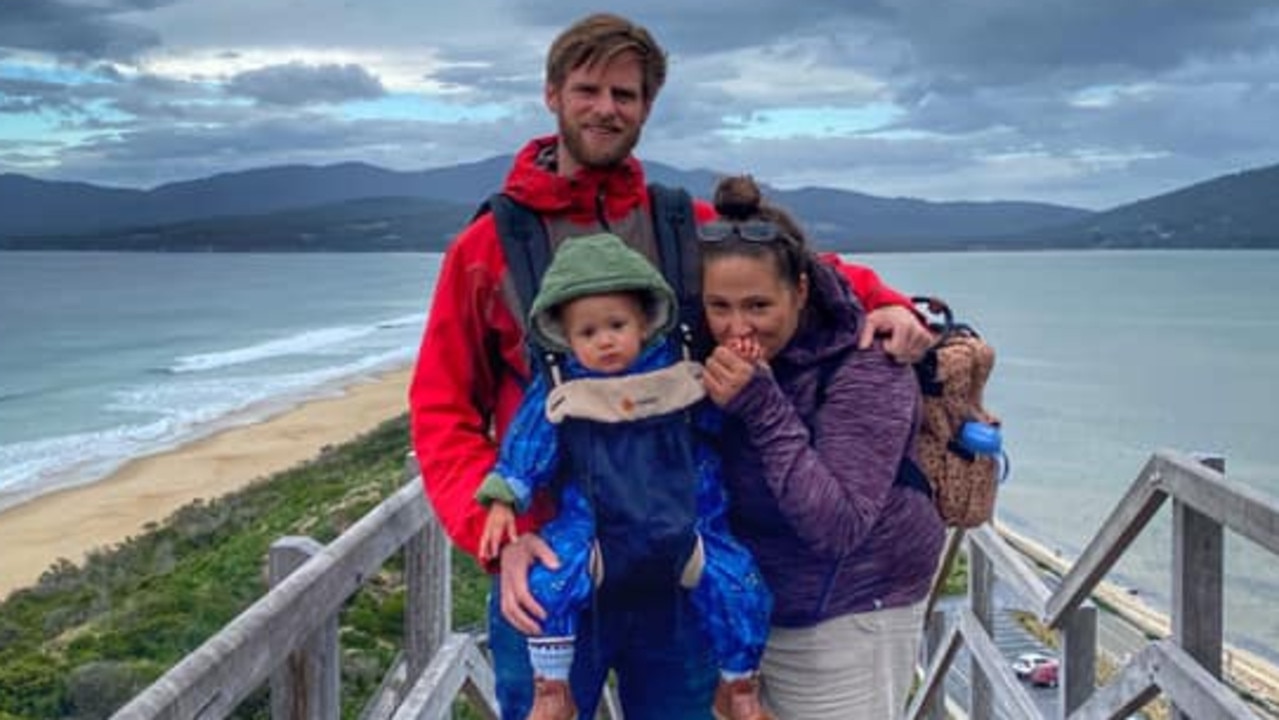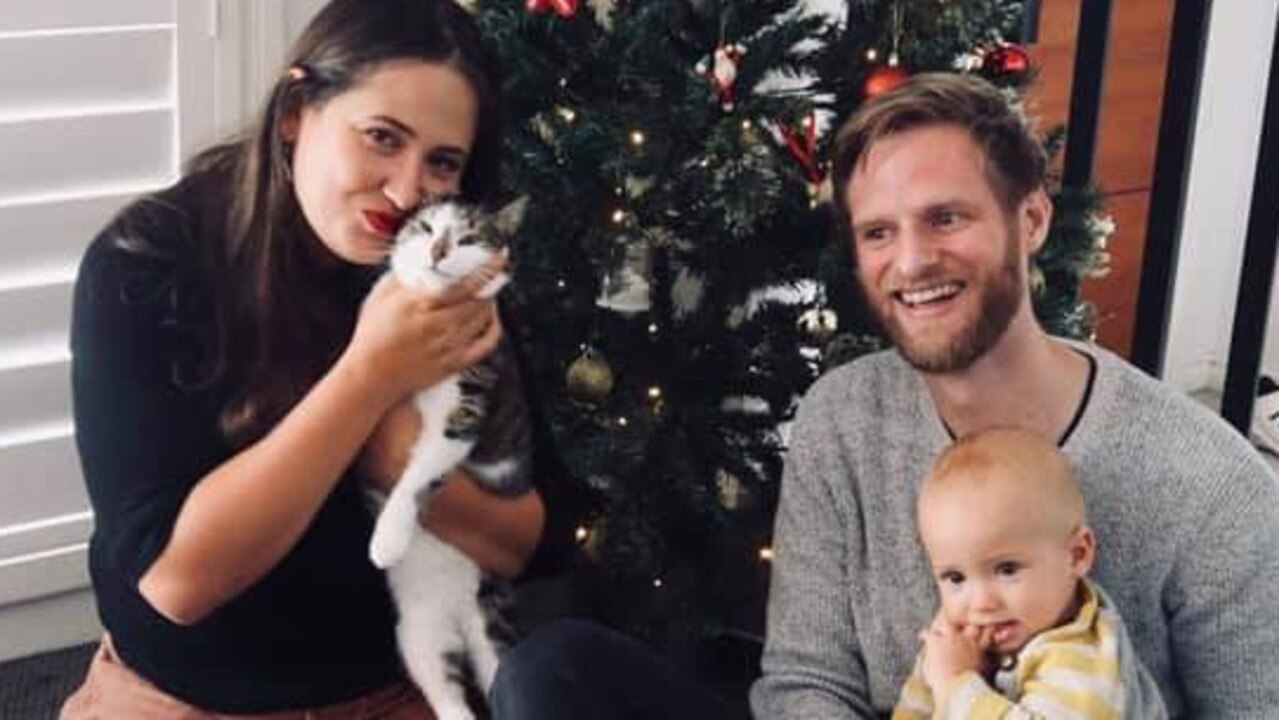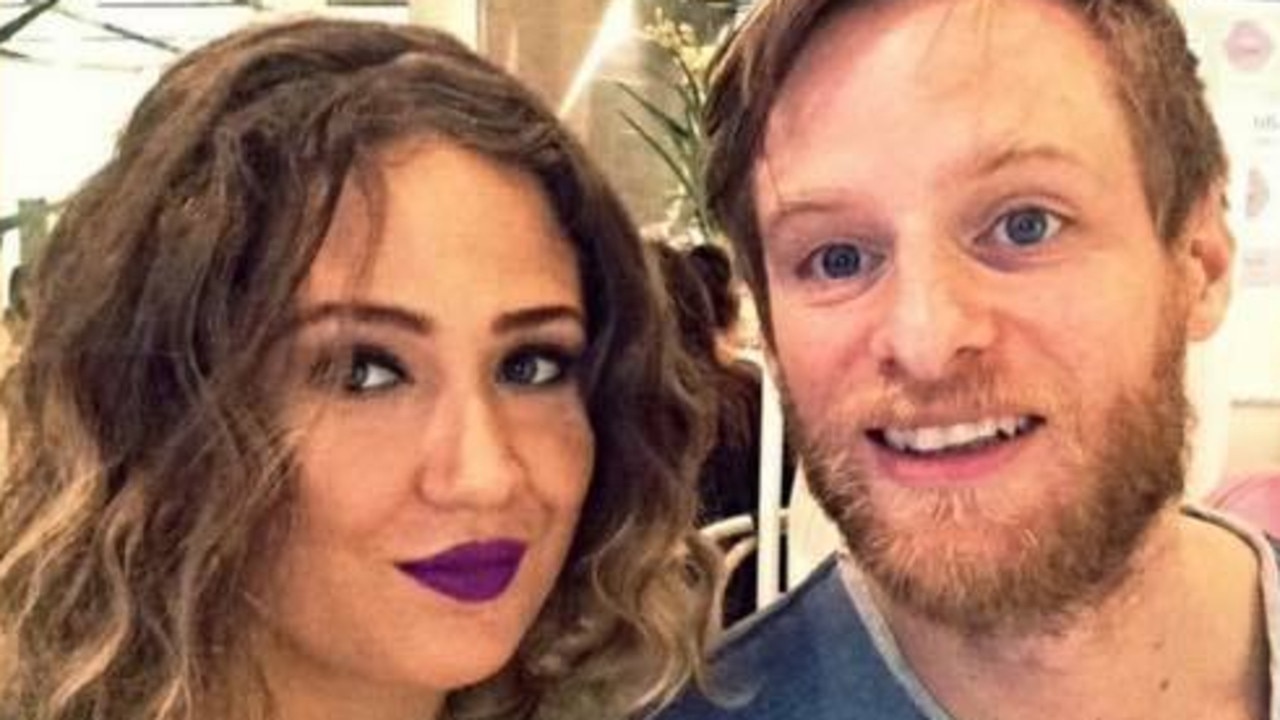How 29-year-old Michelle Ives plans to retire at 35
The 29-year-old from NSW is on track to finish up work in just six years and still live off up to $100,000 a year.

At 35, Michelle Ives is planning to throw in her job and live off between $70,000 and $100,000 a year from the earnings her family makes investing – and she’s just six years off achieving this dream.
The married mum of one, who runs her own copywriting business, will retire around half the age it will take her peers to get there.
By that time, the family will have an investment portfolio worth $2 million.
Growing up she got her first job when she was 14, but said she felt “very trapped” by the notion of working into her 60s or 70s.
She really got serious about the situation when she was 21 and was employed full time as a journalist.
“Everyone followed this linear path to retirement where they work, work, work and do the nine-to-five or just have a job and then they get to 60 to 65 and retire and then potentially have a few golden years to make use of the nest egg that they have built, and that’s if they even have one,” she told news.com.au.
“But it never made sense to me … and I didn’t feel like it was the only path to financial freedom. I was excited to work but why should I have to do that every day until I’m in my sixties or seventies and not even able bodied enough to enjoy it?”
So the now 29-year-old decided to follow a movement called FIRE, which stands for financial independence retire early, and was started in the US.
RELATED: Money question shocking young Aussies

She talks about the movement in an upcoming episode of SBS’ Insight program, which is exploring the topic of retirement in Australia.
The Central Coast mum said FIRE’s principle is about flipping the way you look at money and saving the majority of your annual income and living off the leftovers.
“We save around 70 to 80 per cent of our income, as the theory behind FIRE is you need to either take existing income and need to peel it back as much as you possibly can and create disposable income and start saving and investing that. Or create additional income streams, so get a raise or get a better job or have a side hustle or side business,” she said.
“Instead of just work, work, work and taking the cream on top for retirement, it’s about save, save, save and investing regularly as you can reasonably muster and live off that little bit on top.
“It brings forward the retirement age by decades than people can otherwise realistically do. For some people it’s 40 and for some people, 30 is increasingly becoming the age they can retire.”
She said the bottom line is about making sure your money is working for you, for example, by investing in the share market, making voluntary superannuation contributions to take advantage of the lower tax rate, buying a property and using savings to offset the mortgage account.
Throughout the years Ms Ives has done extra jobs like dog sitting to bring in more money, while her husband, who works as a public servant, got a promotion helping to increase the money they could save, she revealed.
She also started her own copywriting business and the freedom that brought her has bolstered the desire to retire young.
The couple invest in low and moderate index funds and bonds, as well as a couple of listed investment companies, contribute to their super to the maximum cap of $27,500 so they are “taxed more efficiently” and also own a property that they live in on the Central Coast.
RELATED: Easy way to boost super by $56k

Their investment split is roughly 50 per cent property, 25 per cent in shares with mix of both index and company funds including Australian, global, ethical, emerging and speculative, 20 per cent into super and 5 per cent cash offsetting the mortgage.
“What most people in the FIRE community do is invest in asset classes that perform well over time. It’s not about shooting the lights out with investments immediately, but over a longer term time frame seeing a decent return,” she said.
“Some of our property yield investments is massive and enormous and our shares have done really well and some are sitting well within the average realm.”
Ms Ives admitted she audited the family’s spending by going through their bank accounts line by line and deciding whether the purchases actually brought them “joy”.
She uncovered most of the purchases were “mindless” and this strategy freed up a lot of spare cash.
“We have a real fear of missing out in our culture and we must do everything and have all these things and if we don’t, we will be less worthy of people’s respect or affection and the fear is around frugality,” she said.
“But the fear for me is sitting at desk for 60 years and lining someone else’s pockets and being at the beck and call of a boss or corporation and relying on them for security – that scares the s**t out of me.
“We are more frugal than most and we are not spending hundreds a week on online gadgets or fancy restaurants or beauty treatments or products and that’s not to say we don’t do it but we do it less than others.”
A lot of evidence has showed that once your salary has increased above the standard living wage, happiness only marginally increases and in some cases goes the opposite way, she added.
What does give happiness is living comfortably and having a nest egg, she said.
“Mindless consumerist rubbish doesn’t contribute to my happiness and the worthiness I feel and if anything it’s robbing me of financial freedom and that’s a lot of what the FIRE community feel – doing this literally buys back their life,” she said.
Ms Ives acknowledged that putting up to 80 per cent of income into various investments might cause others “anxiety” but aiming for even 30 to 40 per cent of your earnings would help with securing a comfortable retirement.
With a husband who is nine years older than her, Ms Ives was also quick to dismiss claims that she married rich or that they are on crazy high incomes.
“The big criticisms I get is one is that I come from generational wealth and that my parents handed me a big nest egg and the second is I married a rich husband and my husband is minted, when the reality is when I met him he worked as an aircraft technician and none of that’s true,” she added.
“I’ve never had anything handed to us, we have built and saved for ourselves completely 50/50.”

A couple of things like maternity leave and house repairs did throw out their plan, admitted Ms Ives, and they only saved 40 per cent of their income some years.
For her early retirement, Ms Ives originally had plans to travel the world as a family, spend more time with her son, volunteer and finish the novel she is writing.
While the pandemic has changed some of these plans, she is most looking forward to the freedom it will bring.
“The beauty of it is I can do anything I damn well want to because I have the choice. I feel like everyone would love that choice. The thing is growing up I had this idea that wealth is this concept behind a gate and only those who come from money or had an ASX-listed idea could be financially free and that’s not true,” she said.
“I’m sure there are entities that would love you to believe that it’s fine to depend solely on nine-to-five and leave us to do the big deals, but with moderate assets you do make a good return and people can make millions literally by doing this and a lot of people have the potential to do this.”
One criticism of FIRE is the cost of inflation not being factored into returns, but Ms Ives said it can be combated by looking for investments that rise with inflation, while many proponents only live off a percentage of their returns and have paid off their mortgage too.
The family will live off their investment returns at a rate of around 4 per cent a year until they are eligible to access their super funds.
Ms Ives blogs about the FIRE movement in That Girl on Fire but recommends others do us much research as possible, suggesting blogs like Mr Money Mustache, YouTube videos from SugarMumma and books like Motivated Money, as well as reading up on micro-investing.
“I love a tool like Money Smart’s compound interest calculator,” she added.
“It’s mind-boggling to see how only a small initial deposit and regular monthly contributions can lead to some incredible growth numbers in only five years, then 10, then 15.”
Trial and error is also a big part of the investment journey and helps you learn, she added.
You can hear more from Michelle and others on retirement tomorrow on SBS Insight at 8.30pm




